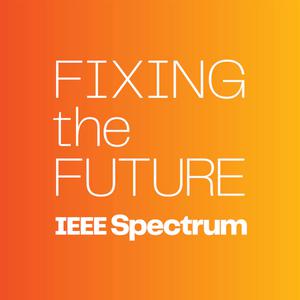
Fixing the Future
IEEE Spectrum
Fixing the Future from IEEE Spectrum magazine is a biweekly look at the cultural, business, and environmental consequences of technological solutions to hard problems like sustainability, climate change, and the ethics and scientific challenges posed by AI.
- 28 minutes 1 secondUsing AI to Clear Land Mines in Ukraine
Gabriel Steinberg, co-founder of the nonprofit Demining Research Community and the startup Safe Pro AI talks with Spectrum editor Eliza Strickland about using machine learning to speed up demining operations in former Ukranian battlefields.
29 May 2024, 9:00 am - 26 minutes 54 secondsNever Recharge Your Consumer Electronics Again?
Founder and CEO of Exeger, Giovanni Fili, talks with IEEE Spectrum editor Stephen Cass about Exeger's Powerfoyle flexible dye-based solar cells for consumer electronics, which can recharge devices even in indoor light, and how Exeger convinced major companies to incorporate its tech into their products.
15 May 2024, 9:00 am - 24 minutes 30 secondsThe UK's ARIA Is Searching For Better AI Tech
The United Kingdom has created a new government agency, the Advanced Research and Invention Agency, or ARIA, similar to the United States' DARPA. ARIA's first foray is into creating new enabling technologies to make AI faster and more energy efficient, and the program director, Suraj Bramhavar spoke with Spectrum editor Dina Genkina about some of the new avenues that ARIA would be helping investigate.
1 May 2024, 9:00 am - 20 minutes 16 secondsZipline's Droid Brings U.S. Commercial Drone Delivery Closer
Zipline originally established itself delivering medical supplies in rural Africa. Now, Zipline cofounder and CTO Keenan Wyrobek talks with senior editor Stephen Cass about recent milestones in bringing commercial drone delivery to the United States, including the development of Platform 2 and its tethered mini-droid that makes precision drop-offs possible in urban areas.
17 April 2024, 9:00 am - 12 minutes 49 secondsHeat Pumps Go North
Governments in America and Europe are pushing the deployment of heat pumps to reduce the energy demands of home heating and cooling. Spectrum's power and energy editor Emily Waltz talks with Stephen Cass about her reporting on new advances that will let heat pumps work in colder climates than before, expanding their range considerably.
3 April 2024, 9:00 am - 29 minutes 21 secondsThe Cutting Edge of Integrated Circuits: Exploding Chips, How Meta's Stacking It Up For AR, and More
IEEE Spectrum's semiconductor expert, Samuel K. Moore, talks with Stephen Cass about his visit to one of the key conferences in emerging integrated circuit technology, ISSCC. We talk about Meta's new 3D chip-stacking tech for faster AR, faster AI through in-memory computation, and security technology that can cause a chip to self-destruct if anyone tries to hack it.
20 March 2024, 9:00 am - 36 minutes 21 secondsLean Software, Power Electronics, and the Return of Optical Storage
In this March roundup, IEEE Spectrum's editor-in-chief Harry Goldstein and senior editor Stephen Cass talk about some of the highlights of Spectrum's recent coverage, including a plea for programmers to stop producing bloated programs, a new transistor that could help make how we handle electrical power smarter, and the potential return of optical discs as a high-density date storage medium.
6 March 2024, 10:00 am - 30 minutes 15 secondsThe Autonomous Research System Lets Robots Do Your Lab Work
The Air Force Research Laboratory (AFRL) recently released the open-source ARES_OS, a key software component of their Autonomous Research System. ARES_OS allows relatively simple robots to perform experiments, and develop new experiments based on the results. The AFRL's Benji Maruyama talks with IEEE Spectrum associate editor Dina Genkina about how he hopes the system becomes not just an invaluable helper for grad students, but opens up research to many more people outside traditional labs and enables progress in tackling hard problems like climate change.
21 February 2024, 10:00 am - 25 minutes 48 secondsFiguring Out Semiconductor Manufacturing's Climate Footprint
The semiconductor industry is in the midst of a major expansion driven by the seemingly insatiable demands of AI, the addition of more intelligence in transportation, and national security concerns, among many other things. What this expansion might mean for chip-making's carbon footprint? Can we make everything in our world smarter without worsening climate change? Lizzie Boakes is a lifecycle analyst at IMEC, the Belgium-based nanotech research organisation, and she speaks with senior editor Samuel K. Moore about her work on this problem.
7 February 2024, 10:00 am - 26 minutes 54 secondsThe Brain Implant That Sidesteps The Competition
We've all seen impressive demos of prototype brain implants being used by paralyzed patients to interface with computers, but none of those implants have entered general clinical use. Biomedical device company Synchron is close to actually coming to market with its stentrode technology, promising less spectacular results than some of its competitors, but making up for that with ease of use and implant longevity. Synchron's co-founder Tom Oxley talks with IEEE Spectrum senior editor Eliza Strickland about the new tech, and you can read more in our January issue article by Emily Waltz.
24 January 2024, 10:00 am - 23 minutes 56 secondsThe Finnish Future of Sustainable Electronics
The EU Sustronics program aims to make creating, maintaining, and recycling electronics more sustainable. Liisa Hakola is a senior scientist and project manager at the VTT Technical Research Center in Finland. She talks with IEEE Spectrum senior editor Stephen Cass about VTT's role in the EU's program, helping manufacturers to develop flexible, printed—and even compostable—electronics.
10 January 2024, 10:00 am - More Episodes? Get the App
Your feedback is valuable to us. Should you encounter any bugs, glitches, lack of functionality or other problems, please email us on [email protected] or join Moon.FM Telegram Group where you can talk directly to the dev team who are happy to answer any queries.
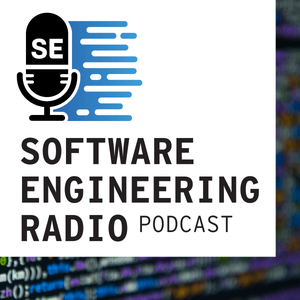 Software Engineering Radio - the podcast for professional software developers
Software Engineering Radio - the podcast for professional software developers
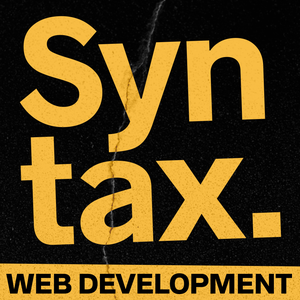 Syntax - Tasty Web Development Treats
Syntax - Tasty Web Development Treats
 Last Week in AI
Last Week in AI
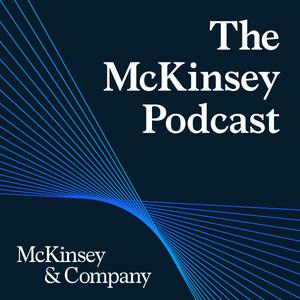 The McKinsey Podcast
The McKinsey Podcast
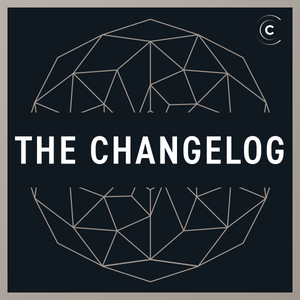 The Changelog: Software Development, Open Source
The Changelog: Software Development, Open Source
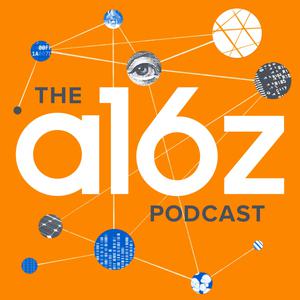 a16z Podcast
a16z Podcast